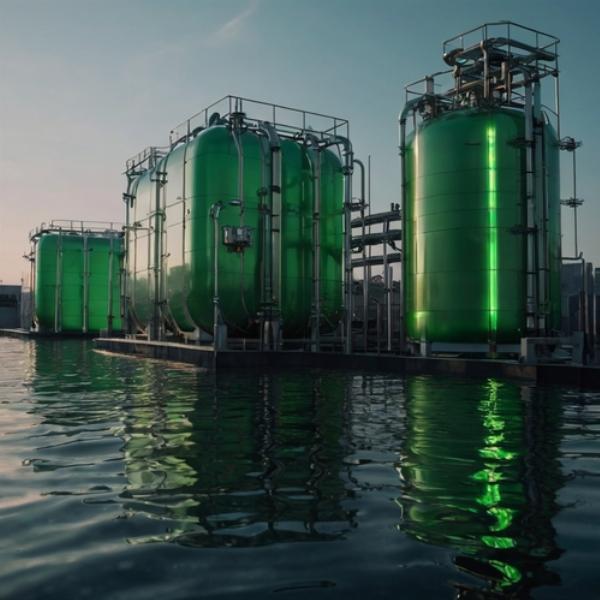Growth Opportunities in the GCC Green Hydrogen Market by 2031

Strong 8k brings an ultra-HD IPTV experience to your living room and your pocket.
Introduction
As the global energy landscape undergoes a significant transformation, the GCC Green Hydrogen Market is expected to witness rapid growth by 2031. Green hydrogen, produced through electrolysis powered by renewable energy, offers a zero-emission alternative to traditional hydrogen production methods. The GCC’s focus on decarbonization and its rich renewable energy resources are positioning the region as a key player in the green hydrogen market, providing ample opportunities for economic diversification and sustainability.
Decarbonization and Energy Transition
GCC countries have long been associated with fossil fuel production, but recent years have seen a strong commitment to reducing carbon emissions and adopting clean energy technologies. The transition to green hydrogen is seen as a crucial step in achieving national carbon neutrality goals and supporting global climate initiatives.
For example, Saudi Arabia’s Vision 2030 and the UAE’s Energy Strategy 2050 both emphasize sustainability, with a particular focus on hydrogen as part of their renewable energy mix. These national strategies aim to reduce dependence on oil and gas, diversify the energy economy, and play a more significant role in the international hydrogen market. As a result, green hydrogen projects are receiving increasing attention and funding, making the region a hub for hydrogen innovation.
Growing Demand for Clean Energy
Global demand for clean energy is driving investments in the GCC green hydrogen market. Industries worldwide are under pressure to reduce their carbon footprints, and hydrogen offers a solution for sectors that are hard to electrify, such as aviation, shipping, and heavy industry. As the global demand for hydrogen increases, GCC countries are well-positioned to capitalize on their renewable energy resources to meet this growing need.
In particular, industries within the GCC, such as steel, cement, and petrochemicals, are significant energy consumers and carbon emitters. Green hydrogen presents a pathway to decarbonize these sectors, contributing to the overall reduction of emissions in the region.
Strategic Export Opportunities
With its strategic geographic location between Europe, Asia, and Africa, the GCC has the potential to become a major exporter of green hydrogen. Several countries in Europe and East Asia are heavily investing in hydrogen technologies as part of their own decarbonization efforts, creating a lucrative market for hydrogen exporters.
The GCC’s proximity to key international markets gives it a competitive advantage in hydrogen trade. Additionally, long-standing relationships with energy-importing nations like Japan and South Korea provide a strong foundation for future hydrogen partnerships. As these countries ramp up their hydrogen consumption, the GCC can leverage its renewable energy capabilities to supply the growing demand for green hydrogen.
Technological Innovations
As the GCC green hydrogen market matures, technological advancements will play a crucial role in reducing the cost of production and increasing efficiency. Innovations in electrolyzer technology, which is used to separate hydrogen from water, are expected to lower production costs and improve scalability. Furthermore, advancements in hydrogen storage and transportation technologies will enable the GCC to overcome logistical challenges associated with hydrogen’s low energy density.
Research and development efforts are also underway to create hydrogen-based solutions for various industries, including transportation, where hydrogen fuel cells are emerging as a promising alternative to electric batteries for long-range vehicles.
Conclusion
By 2031, the GCC green hydrogen market is expected to be a major contributor to the global hydrogen economy. The region’s commitment to renewable energy, combined with its strategic location and government-backed initiatives, sets the stage for substantial growth in hydrogen production and export. As technology advances and global demand for clean energy increases, the GCC is poised to be a key player in the green hydrogen revolution, helping to drive the transition towards a more sustainable and carbon-neutral future.
Note: IndiBlogHub features both user-submitted and editorial content. We do not verify third-party contributions. Read our Disclaimer and Privacy Policyfor details.


